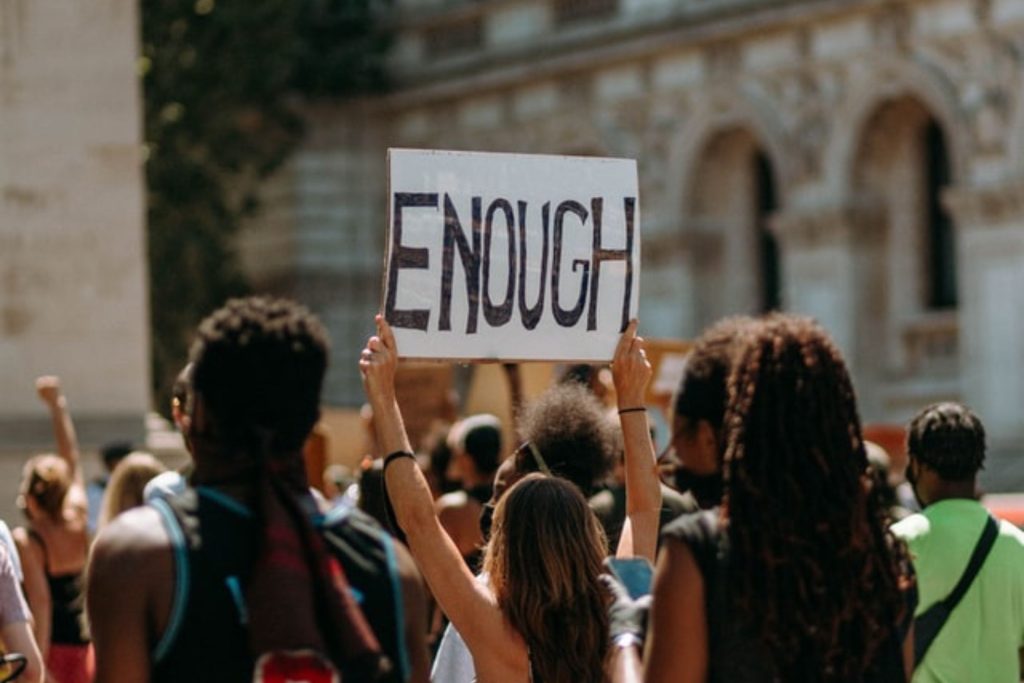There is a tendency to portray girls and women as powerless and knowledgeable only in specific areas that fall into the margins of gender stereotypes. For example, a study on girls’ and women’s participation in TV programs found that approximately more than 73% of the invited panellists are men, while less than 27% women. This gap increases when it comes to TV discussions on political and security-related issues in which the active participation of girls and women as panellists is insignificant.
The invisible power of language
There is an old saying in Albanian that goes “the tongue has no bones, but bones it breaks”, the use of language has immense power, especially with the increasing use of technology and social media. Hate speech and the use of sexist terminology are among the unethical ways of manifesting unequal power between women and men. Such ways add to the marginalisation of the position of girls and women in society and create invisible barriers to their process of empowerment.
Media has a crucial role in reinforcing or reducing stereotypes and discrimination against vulnerable groups and specific topics. Some of the tools that the mediauses to do that are headlines, provocative comments, and the use of sexist and discriminatory language. In a patriarchal society such as Albania, such headlines hinder the advancement of women’s rights and their position in society. Cases of sexism in the media are widespread in Albania, they can be spotted massively in the news of online portals, commercials, TV shows, and public panel discussions.
Media in general, with a specific emphasis on online portals, tend to objectify and label women based on how they dress, the shape of their bodies, and many other aspects that should not define the skills and abilities of a person. Cases of women in journalism receiving publicly offensive and discriminative comments have been noted in various TV channels and panel discussions. It is not new to see the personal life of girls and women exposed, especially for the ones involved in the media industry. The use of personal attacks as a form of deviation from the main argument feeds into what online portals are looking for to make attractive headlines and deepens the gap of girls’ and women’s participation in public life.
Being powerful…and a woman?
There are few known cases of women in high executive positions in Albania, in comparison to the male ones. For example, 25.7% of the businesses in Albania were directed by women in 2018. In the majority of cases, TV programs portray girls and women in the margins of a patriarchal conception. Girls and women tend to be invited as speakers or editors in topics such as “the best home recipes” “the secrets to perfectly clean clothes” “how to lose cellulite in 20 days”. One-sided narratives contribute to an ongoing challenge for women’s empowerment and promote stereotypical gender models that become the standard of what the role of girls and women should be.
How can we walk towards an emancipated media when “the standard” of receiving media’s attention is by being “the victim” or the norm breaker? There are numerous inspiring and empowerment-related stories of girls and women in Albania, they do not need a voice to be heard, they already have that, what they need is an open media space that accepts diversity and promotes inclusion.








